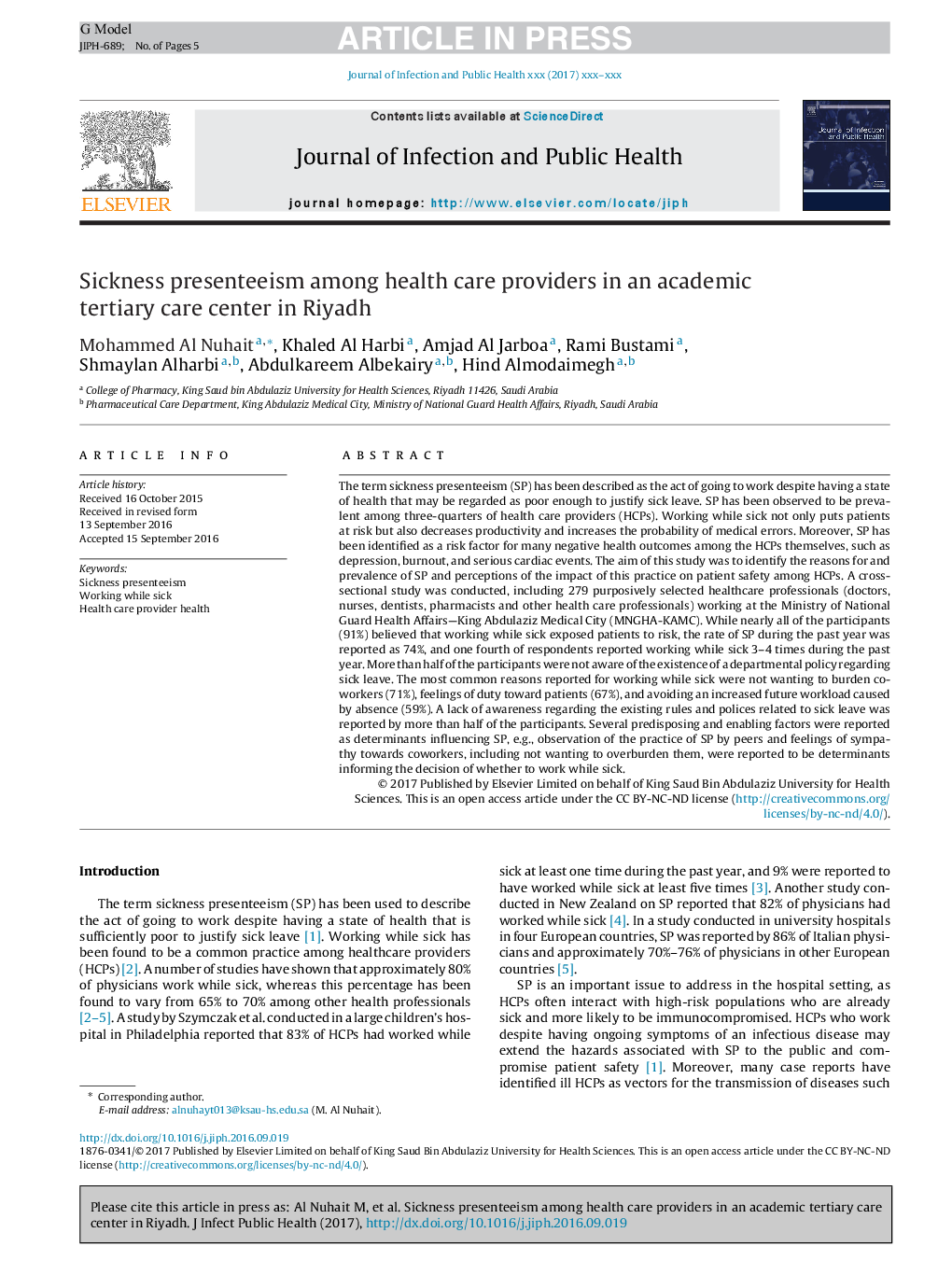ترجمه فارسی عنوان مقاله
ارائه خدمات بهداشتی در میان ارائه دهندگان خدمات بهداشتی در مرکز مراقبت های عالی در ریاض
عنوان انگلیسی
Sickness presenteeism among health care providers in an academic tertiary care center in Riyadh
| کد مقاله | سال انتشار | تعداد صفحات مقاله انگلیسی |
|---|---|---|
| 153598 | 2017 | 5 صفحه PDF |
منبع

Publisher : Elsevier - Science Direct (الزویر - ساینس دایرکت)
Journal : Journal of Infection and Public Health, Volume 10, Issue 6, NovemberâDecember 2017, Pages 711-715
ترجمه کلمات کلیدی
ارائه خدمات بیمارستانی، کار در حالی که بیمار است سلامت ارائه دهنده مراقبت بهداشتی،
کلمات کلیدی انگلیسی
Sickness presenteeism; Working while sick; Health care provider health;

